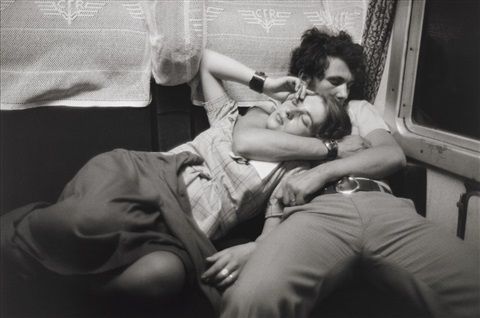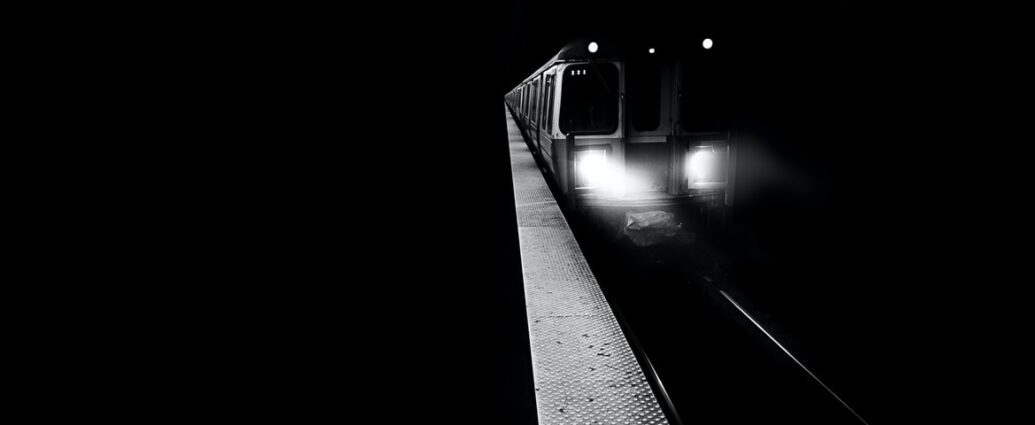(This flash-length piece first appeared in freeze frame fiction, and is here reprinted in full. None of the text may be copied or reproduced without the written permission of author.)
After it happened, we boarded the late train to Paris. Cities flashed past the window, Munich, Augsburg, Stuttgart, smears of yellow light, followed by long gulfs of darkness. The darkness crept into the car like worms, and if I slept it might crawl into my skin. Milo slept. It wasn’t because he was not afraid, or that he felt no sorrow. He slept because he was running, and sleep is an easy way to hide.
We brought nothing with us. Almost nothing. In the front pocket of my jeans, I had tucked a pair of baby shoes, crocheted by my mother. She was happy about the baby until she learned Milo was Jewish. “That was a long time ago,” I told her.
“People haven’t forgotten,” she said.
“They shouldn’t forget,” I said as I left her house. I didn’t visit her again. She called every day, but I didn’t answer. She was no longer my refuge. Milo was a gate between us, a gate she couldn’t walk through.
Milo doesn’t know I kept the shoes. He said, “We’ll start over in Paris. I can paint and you will write. In Paris, anything can happen.”
“Maybe,” I said. Can people start over?
Inside the rattling cabin, I fought the darkness. It burrowed and taunted, and its words were unforgiving. The rattling of the car slowed. A sign swept past proclaiming Strasbourg. We had arrived on the border, and the train would stop for ten minutes. People got off. People got on.
“I need to take a walk,” I said, untangling myself from Milo’s arm. He shook off the camouflage of sleep, started to rise. “Alone,” I said.
“Are you all right?” he asked. He knew the answer, so I knew it wasn’t the question he wanted to ask. Will you come back? was the question I saw in his eyes.
“I don’t know,” I said aloud.
I crossed in front of the train and walked along the tracks, out over the great bridge that spanned the Rhine. To the north, the city of steeples clutched the riverbanks, like a fist clasping the arm of a lover slipping away. To the south, the darkness stretched unimpeded. The Rhine whispered beneath my feet. An ancient river harbors ancient secrets. And new ones too. It is eternal enough to shoulder both. Her black waters glimmered with flecks of light cast by a drifting moon. She seemed to gather darkness from the sky, from the trees along the banks, from the alleys of Strasbourg, and sweep it away. How much darkness had that river carried in her lifetime? She had borne the burden without complaint. Could she sweep away the darkness inside me, too?
I stepped up onto the iron rail, and for a moment I floated, suspended above certainty. Anything might happen. Milo was right. But nothing would happen if I didn’t let go. People can’t start over; that was Milo’s mistake. There was no starting over. But there’s no going back either. There was only the night train speeding me forward.
I leaned over the rail, over the river of ancient secrets, and tossed in the baby shoes.
END
~~~~~~~~~~~~~~~~~
BONUS! People are always asking, how do you get your ideas? So as a little extra, the image that inspired this story was this photograph by Henri Cartier-Bresson:

